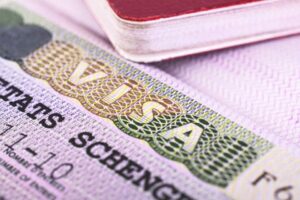The coronavirus outbreak in China has nations around the world grappling with their own localized cases as well as the broader implications all of this has for international travel. On top of canceled flights and sharply declining tourist revenues, the coronavirus is starting to impact factory production and logistics around the world. Given the gravity of the situation and how much damage a full-blown outbreak would do to the broader economy over a longer period of time, the European Union has restricted Schengen visas to people from China in an effort to halt the spread of the virus via the one route remaining open: Trade.
Most Visa Application Centers across China will remain closed until Feb. 9 The re-opening of the centers may change, subject to further notifications from authorities.
Like the SARS outbreak before it and the MERS outbreak that followed that, Covid-19 is charting a similar course. Complications associated with Covid-19 include respiratory symptoms, fever, cough, shortness of breath and trouble breathing in general. In extreme cases, it can cause kidney failure and death. The World Health Organization advises people to continuously wash their hands and avoid undercooked meats.
Additionally, it is recommended that people cover their mouths when coughing and self isolate if they start showing symptoms of illness. Limiting air travel not only helps contain the outbreak by cutting off pathways for spread but also limits the intense exposure people have to one another while on a commercial airline.
The World Health Organization tells us that Covid-19 is highly contagious.
As they explain, “The disease can spread from person to person through small droplets from the nose or mouth which are spread when a person with COVID-19 coughs or exhales. These droplets land on objects and surfaces around the person. Other people then catch COVID-19 by touching these objects or surfaces, then touching their eyes, nose or mouth. People can also catch COVID-19 if they breathe in droplets from a person with COVID-19 who coughs out or exhales droplets. This is why it is important to stay more than 1 meter (3 feet) away from a person who is sick.”
A recent flight of US citizens caused controversy because the government officials managing their transport weren’t given proper medical gear and prevention supplies which just further serves to highlight how treacherous air travel during an outbreak. Many experts anticipate the arrival of warmed temperatures in the northern hemisphere will limit the spread of Covid-19 and thus contain the economic impact it has in the coming months though that remains to be seen.















